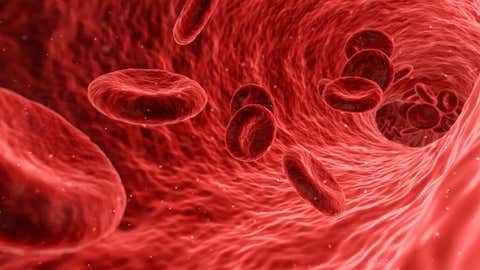Blood
Cancer Patients with COVID-19 May be Under Risk of Increased Blood Clots: Study

Red blood cells.
(IANS)
Cancer patients hospitalised with COVID-19 and those on anti-cancer drugs may face an elevated risk of developing venous thromboembolism (VTE), and potentially severe blood clots in veins, as per a study.
Published in JAMA Oncology, the study revealed that those receiving systemic anti-cancer treatment had a 33% higher relative risk of VTE compared to non-recipients.
However, researchers from the universities of California, Cincinnati, and Texas noted that these drugs didn’t correlate with a greater risk of arterial thromboembolism.
“The findings underscore the necessity for vigilant monitoring and personalised thromboprophylaxis to avert COVID-19-related thromboembolism-associated morbidity and mortality in cancer patients,” they explained.
For the study, the US-based team analysed data from 4,988 cancer patients globally who tested positive for SARS-CoV-2 from March 2020 to December 2021.
They compared 1,869 patients receiving systemic anti-cancer therapies (endocrine therapy, immunomodulators, chemotherapy) in the three months before COVID-19 with those who didn’t.
Furthermore, patients with thromboembolic events (TEEs) exhibited high ICU admission (46%) and mechanical ventilation (31%) rates.
Risk of death in patients with TEEs correlated with compromised physical abilities and active/progressing cancer.
**
The above article has been published from a wire agency with minimal modifications to the headline and text.

